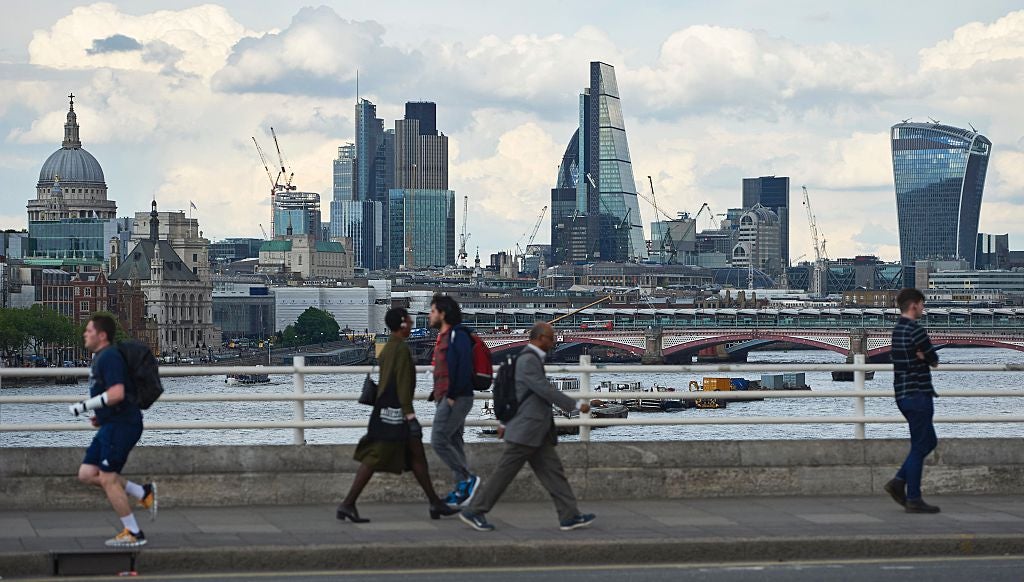On a remote mountain or a drizzly moor it is almost possible to imagine that the precise path you are treading is unique – even if it is visible to the naked eye or marked on a map.
Others may have been there before, but did they step on exactly the same square inches of ground? Did they take the identical route?
When the way is overgrown, you might convince yourself you are a real explorer.
In urban places, it is harder to believe that any path is new, individual, untrampled. Pavements, after all, have been laid where they will be followed. Lanes and passages connect artery to artery, all bloodied by the pounding of feet.
On city hillsides, steps can feel mysterious – especially at night – but they have been ascended and descended by thousands, worn by the ages.
In London, home to many millions and office to millions more, no corner is unknown. Landmarks are utterly familiar, the streets are thronged daily; even in the parks it is impossible to believe any blade of grass has not felt the tread of another’s shoe.
When I moved to the capital in 2000 that sense of being a tiny part of the crowd – of stepping into the footsteps of other people, and having my own immediately filled – was disquieting. How can you find your own path when there is always someone else there first, or hot on your heels?
I was about the first of my home and university friends to end up in the big smoke, having bagged a job – fairly randomly – in media regulation. Our offices were just off Fleet Street: a peculiar hangover from the days when journalists worked and played there.
Some new friends offered me the box room in their rented house in Earlsfield, one stop further out from Clapham Junction on the mainline into Waterloo. Every day I would walk to work from that great terminus – the only decision being whether to cross the Thames via Waterloo Bridge or Blackfriars.
The latter was a bit quicker, but the former grabbed my heart. In those first months I often wondered what on earth I was doing in the mad metropolis, especially in the evenings. I found an answer on Waterloo Bridge, just as so many others had done, as the sun set beyond parliament and as St Paul’s reached stolidly into the sky to the east.
Here was the London of my imagination – and of Ray Davies’s song – suddenly at my feet.
True, I was just one among a gazillion Terrys and Julies who had crossed the dirty old river and felt a sense of belonging. But oddly, I realised that it was precisely that notion of being just one in a long line of anxious people to have washed up in London more or less by accident which was the source of my comfort.
Others had questioned what they were doing with their lives as they trudged through the streets of the capital, climbed its steps and crossed its bridges. They had found their paths. And so would I.


Join our commenting forum
Join thought-provoking conversations, follow other Independent readers and see their replies
Comments